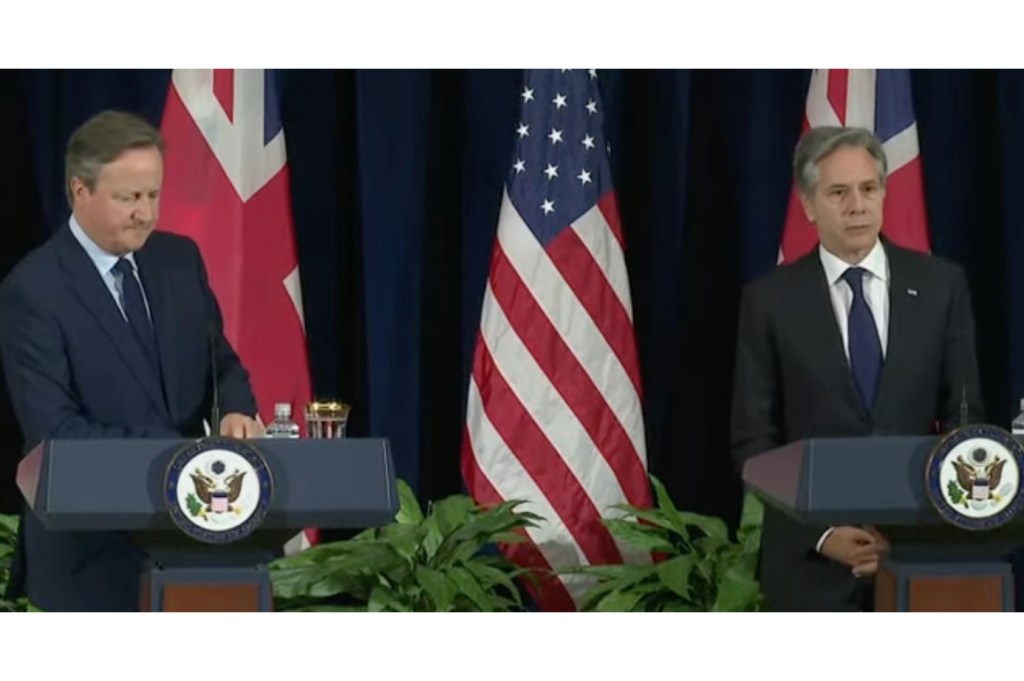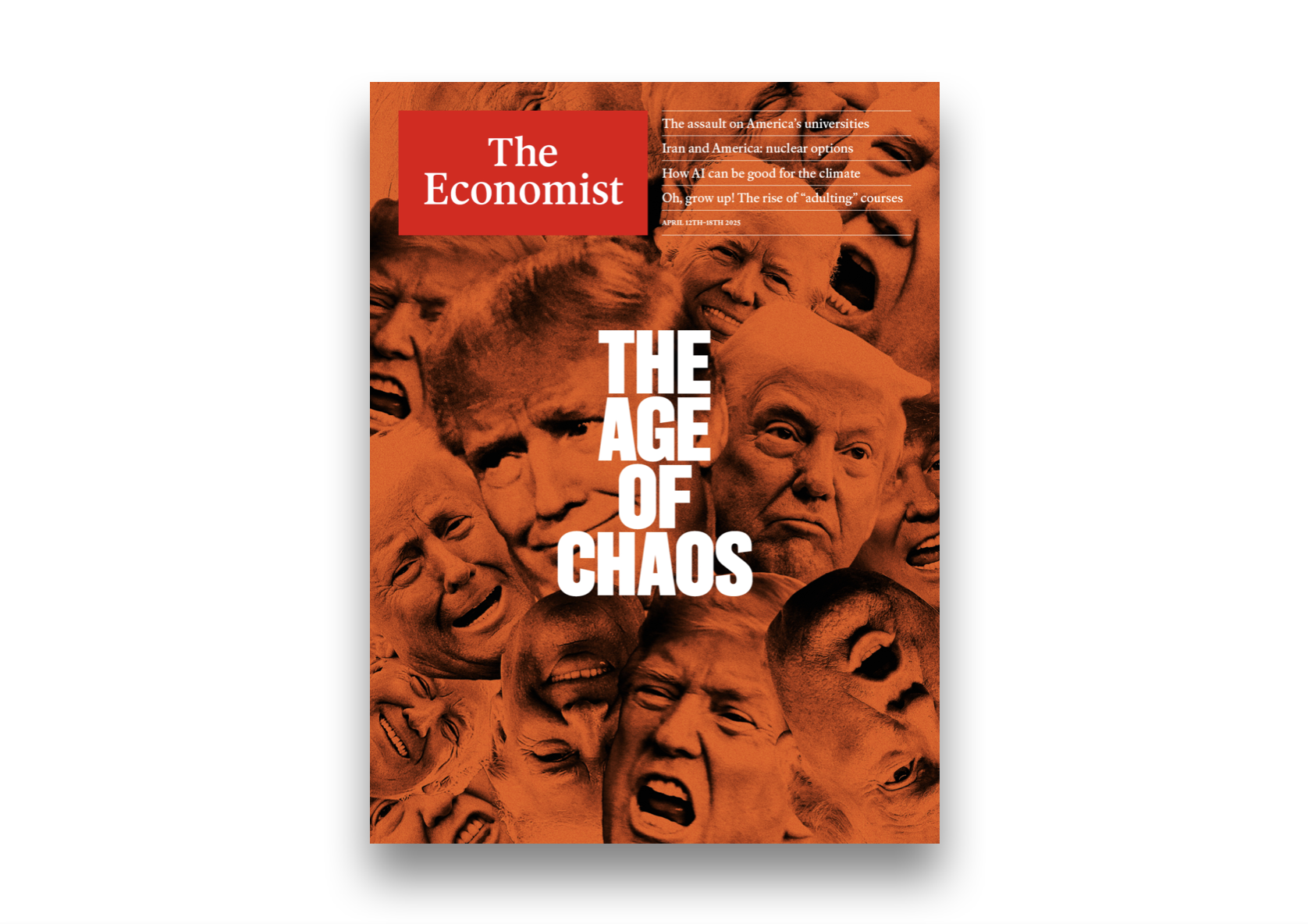“I come here with no intention to lecture anybody.” David Cameron’s line mid-press conference summed up the UK foreign secretary’s approach on his trip stateside. Appearing alongside his counterpart Antony Blinken, Cameron emphasized the extent to which Britain and America are acting in lockstep on Ukraine, Gaza and other various crises. “In a time of danger like this international affairs, close alliances really matter,” he said.
Cameron’s trepidation is understandable: his Tuesday agenda consisted of meetings with skeptical congressional leaders on giving further aid to Ukraine. On his last visit to Washington, Cameron suggested that to not provide further funds risked “replicating weakness displayed against Hitler in the 1930s”; comments which prompted a mixed reaction from hostile Republicans. This time, he was at pains to insist “it is not for foreign politicians to tell legislators in another country what to do,” with his arguments explicitly couched in terms of America’s own self-interest.
“I think it is up to the interests of US security that Putin fails in his illegal invasion,” he continued, noting that hostile actors in Tehran, Pyongyang and Beijing looking at how the US stands by its Ukrainian allies. This has been a theme of Cameron’s visit this week. Ahead of his dinner with Donald Trump, the former prime minister argued that America should stand by Ukraine to “show that borders matter” — a Trumpian argument if ever there was one.
Blinken was happy to echo Cameron’s fighting talk on Ukraine. The secretary of state even argued that the major beneficiary of American military aid was actually the American labor market, owing to increased investment in domestic munitions factories. On Gaza, both men walked the line between support for Israel with criticism of excesses like last week’s attack on seven aid workers. Both even “committed news.” Blinken conceded that the US does not have a day for a potential Israeli operation in Rafah in southern Gaza. Instead he stressed that the opposite is true because the two nations are expected to hold talks next week on alternatives for a Rafah operation.
Cameron meanwhile revealed that he has had reviewed updated legal advice on whether Israel is breaking humanitarian law. “The latest assessment leaves our position on export licenses unchanged,” he said. “This is consistent with the advice that I and other ministers have received and as ever we will keep the position under review.” But, he added, “Let me be clear though, we continue to have grave concerns around the humanitarian access issue in Gaza, both for the period that was assessed and subsequently.”
The main fun though for the assembled journalists was Cameron being asked about his dinner with Donald Trump, given his previous disobliging remarks about the president. Unsurprisingly, the former premier opted not to address these and repeatedly insisted that he would not go into what was said at the pair’s dinner. He instead turned the question around by focusing on increased NATO spending, pointing out that the number of countries hitting their 2 percent target has risen from 3 in 2014 “when I was chairing the NATO conference” to 20 now.
Diplomatic and discreet, it was the kind of answer which showed why Rishi Sunak chose to bring him back as foreign secretary last November.
Listen to today’s Coffee House Shots with Katy Balls, Freddy Gray and the FT’s Lucy Fisher:
This article was originally published on The Spectator’s UK website.


























Leave a Reply